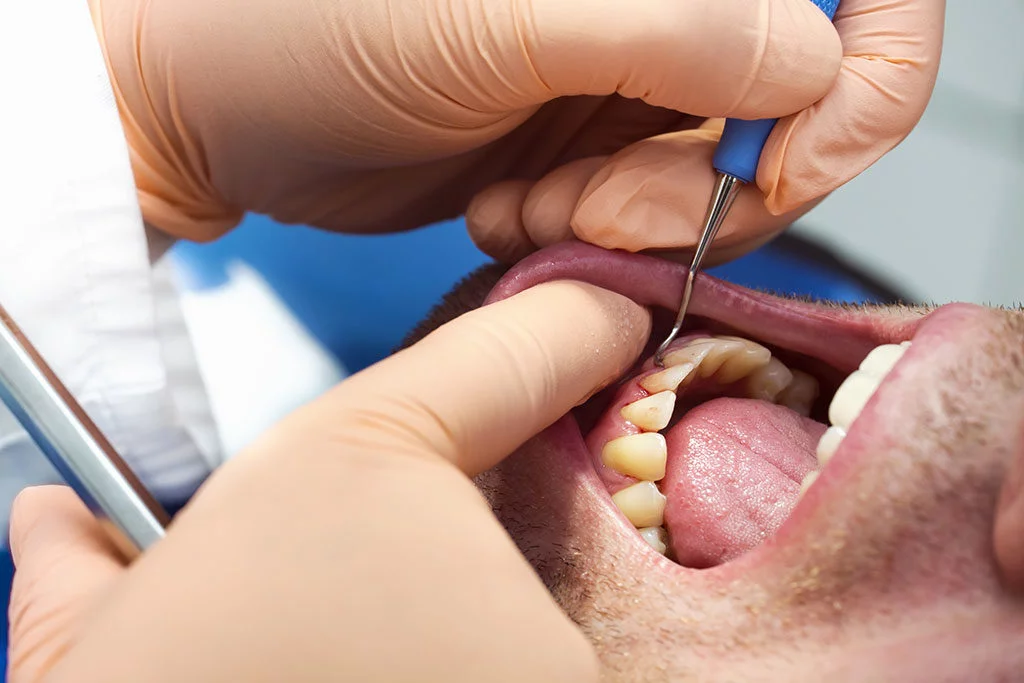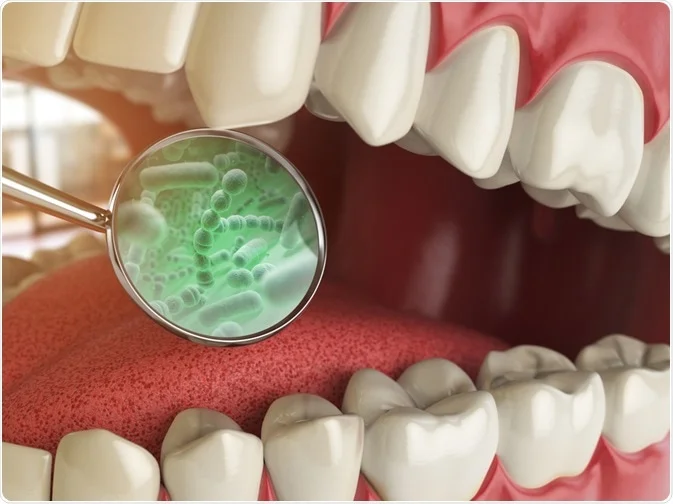When you think of bacteria, you probably think of illness — but not all bacteria are bad. In fact, your mouth is full of bacteria, and many of them are completely normal and even helpful. These tiny living organisms are known as oral bacteria, and they play a huge role in keeping your mouth healthy — or making it sick.
In this article, we’ll explore:
- What oral bacteria are
- The difference between good and bad bacteria
- How they affect your teeth, gums, and even your overall health
- How to keep harmful bacteria under control
🧬 What Are Oral Bacteria?

Oral bacteria are microscopic organisms that naturally live inside your mouth. There are over 700 different types of bacteria in the human mouth. Some of these bacteria help you, while others can cause serious problems if not managed properly.
These bacteria live:
- On your teeth
- Along your gum line
- On your tongue
- Inside your cheeks
- Even under dental appliances like braces or dentures
⚖️ Good vs. Bad Oral Bacteria
Like in many parts of the body, there needs to be a balance between good and bad bacteria in your mouth.
✅ Good Bacteria
- Help digest food
- Keep the mouth’s pH balanced
- Protect against harmful bacteria
- Aid in healing and oral health
❌ Bad Bacteria
- Cause plaque and tartar buildup
- Lead to gum inflammation and bleeding
- Create cavities and tooth decay
- Contribute to bad breath
- Can enter the bloodstream and cause other health problems
When the bad bacteria outgrow the good ones — usually because of poor oral hygiene or unhealthy habits — that’s when problems start.
🦠 Common Harmful Bacteria in the Mouth
Let’s take a closer look at some harmful oral bacteria:
1. Streptococcus mutans
This bacteria is one of the main causes of cavities. It feeds on sugars and produces acid, which wears down your tooth enamel.
2. Porphyromonas gingivalis
This bacteria is commonly linked to gum disease. It can cause deep infections in your gums, and is even linked to heart disease.
3. Fusobacterium nucleatum
It plays a role in plaque formation and is known to spread infections, especially in people with poor oral hygiene.
4. Treponema denticola
This bacteria is found in people with severe gum disease and is linked to tooth loss.
🧼 How to Control Bad Oral Bacteria
Luckily, managing bad bacteria in your mouth is easy with consistent habits. Here’s what you should do:
🪥 1. Brush Twice a Day
Use fluoride toothpaste and brush for at least 2 minutes, especially before bed, to remove food and plaque.
🧵 2. Floss Daily
Flossing removes food particles and bacteria from between teeth — places a toothbrush can’t reach.
🧴 3. Use Antibacterial Mouthwash
A good mouthwash can kill harmful bacteria and freshen breath.
🚫 4. Avoid Sugary Snacks
Sugar is food for bad bacteria. The more sugar you eat, the more acid they make, which damages your teeth.
💧 5. Drink More Water
Water helps wash away leftover food and bacteria, and keeps your mouth moist — which is important for producing saliva, your natural defense system.
🦷 6. Visit the Dentist Regularly
Your dentist can spot early signs of problems, give professional cleanings, and help prevent serious infections.
🌍 How Oral Bacteria Affect Your Whole Body
The mouth is the gateway to the body, so bacteria in your mouth can travel through your bloodstream to other parts of your body. Bad oral bacteria are linked to:
- ❤️ Heart Disease
- 🧠 Alzheimer’s and brain infections
- 🤰 Complications during pregnancy
- 🫁 Lung and respiratory infections
- 🩺 Diabetes and slow wound healing
This is why oral hygiene is not just about a pretty smile — it’s about your overall well-being.
👄 Symptoms of Too Much Bad Bacteria
Watch for these signs that harmful bacteria may be causing problems:
- Bleeding or swollen gums
- Constant bad breath
- Pain while chewing
- Loose teeth
- Sensitive teeth
- White patches or sores in the mouth
If you notice these, visit your dentist as soon as possible.
🧠 Did You Know?
A healthy mouth has more bacteria than a dog’s mouth — and that’s not a bad thing! What matters is the type of bacteria and how well you care for your oral hygiene.
📚 Oral Bacteria and Children
Children are especially sensitive to oral bacteria because their habits are still developing. Teaching them to brush and floss early helps prevent:
- Cavities (tooth decay)
- Baby tooth loss
- Speech development problems
- Infections that could spread to other areas
Parents should also avoid sharing utensils, pacifiers, or toothbrushes to stop the transfer of bacteria.
FAQ’s
1. What causes harmful oral bacteria to grow?
Harmful oral bacteria grow when you eat too much sugar, don’t brush or floss regularly, and skip dental checkups. Poor oral hygiene gives bad bacteria a chance to multiply and cause infections.
2. Can oral bacteria affect my heart or body?
Yes! Bad oral bacteria can enter your blood through your gums and reach your heart or other organs. This may lead to heart disease, infections, or other health problems.
3. How can I naturally reduce bacteria in my mouth?
You can reduce bacteria by brushing and flossing daily, drinking lots of water, eating healthy foods, using natural mouthwashes (like salt water or tea tree oil), and avoiding sugary snacks.
4. Is it normal to have bacteria in the mouth?
Yes, it’s completely normal! Everyone has bacteria in their mouth. The key is to keep a good balance — more good bacteria and less bad bacteria.
5. Can children get harmful oral bacteria too?
Yes, children can also have harmful bacteria. That’s why it’s important to teach them good brushing habits early and avoid sharing spoons or toothbrushes with them, which can pass bacteria.
Conclusion
Oral bacteria are a natural part of your mouth. While some are helpful, others can damage your teeth, gums, and even your overall health. The good news is, with proper oral care — brushing, flossing, healthy eating, and regular dental visits — you can easily control harmful bacteria and protect your smile. Remember, a healthy mouth is the first step to a healthy body.





Leave a Reply